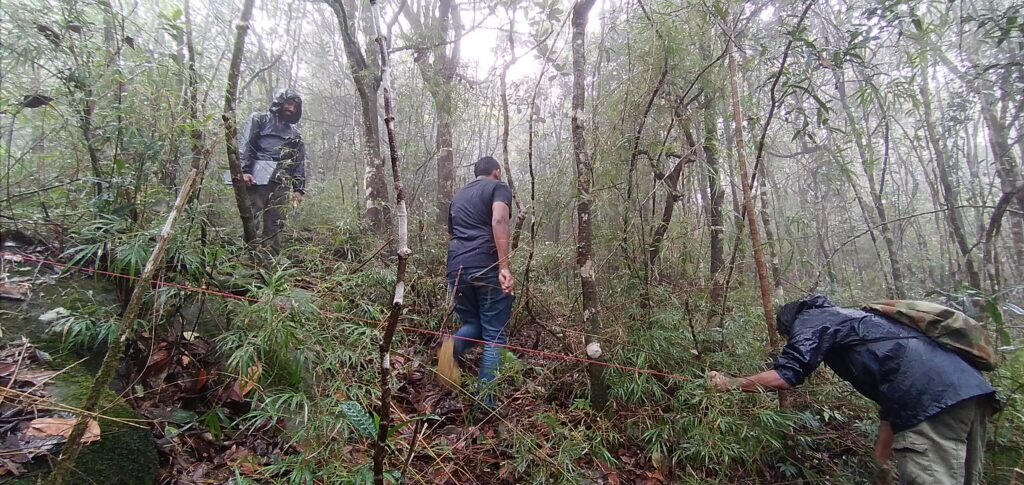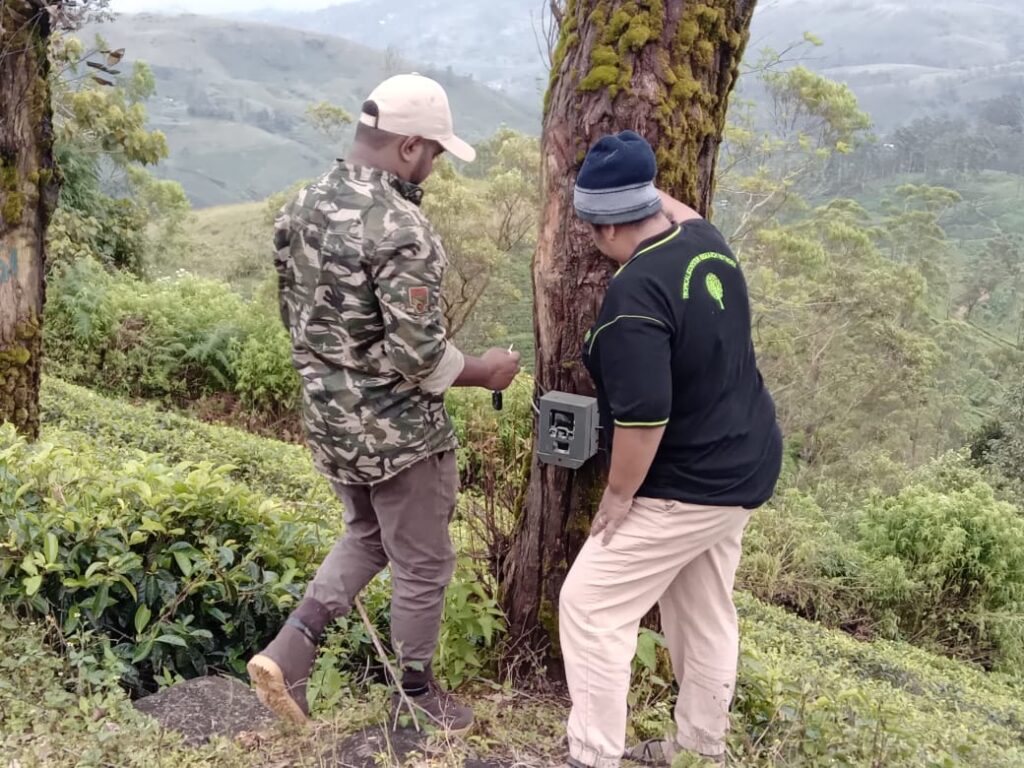Discover the science-based approach to Dilmah’s Climate Change Research Centre
A Sustainability Journey, Food and Drink
A Sustainability Journey, Food and Drink
This article was contributed by Dilmah.
Fine tea has a lasting relationship with nature, sunshine, rain, wind and soil combined to form the conditions that give tea its great taste and natural goodness. When climatic factors begin to change, it can affect the quality of tea. So it is important to have measures in place to adapt to changes beyond our control: like climate change.
Dilmah is a family business founded on a philosophy of serving people and nature – a deep conviction that business must help the people and the planet with kindness to both. Driven by the need to conserve the environment and those that call it home, Dilmah founder Merrill J. Fernando established a sustainability arm for Dilmah called ‘Dilmah Conservation’. As the science of climate change began to evolve, Dilmah Conservation established the ‘Climate Change Research Centre’ at its One Earth Centre in Nawalapitiya. The goal was to address the lack of scientific research on climate change in Sri Lanka, through collaboration with scientists around the world, and by helping small farmers understand the need for climate action.
According to a study by Nature and Climate Change, global agricultural productivity has decreased by 21% since 1961. We are putting in more inputs and getting less yield. And over time, the quality of the produce has also reduced. Scientists and researchers have drawn a link between these changes and Climate Change. For businesses in food and agriculture, it is important to find ways to mitigate and adapt to climate change.
Located in the Queensberry Estate of Dilmah, Nawalapitiya in the hill country of Sri Lanka, lush tea gardens surround the Climate Change Centre, with beautiful views and high plant and animal biodiversity. The centre facilitates student, national and international researchers at the centre. The Centre is equipped to enable advanced research and thereby comprises two complete sets of DAVIS weather stations, mobile air quality monitor and outdoor air quality monitoring system, with live feed. It is also empowered with stereo and contrast microscopes with a field-level lab area to conduct immediate analysis and identification on-site during the research work.
Pollution, more specifically climate change causing greenhouse gases such as Nitrate and Ammonia, has a harmful impact on forest species sensitive to pollution. Since the Queensberry Estate has an abundance of lichen (a plant like organism made of alga and fungi that is an indicator of a healthy environment), the Dilmah climate change centre was ideal and therefore chosen for a long-term study into the effects of ammonia pollution on Sri Lankan lichen species. South Asia is one of the hot spots of pollution, which now reaches even remote forest ecosystems. Research into the impacts of pollution is lacking and therefore is not considered when making policies. This international research spearheaded by the South Asian Nitrogen Hub (SANH) can bridge the gap and help in making headway into controlling GHG emissions for Sri Lanka to contribute effectively to sustainable development and a healthy nation.
(Research Title: Assessment of Nitrogen Air Pollution Impacts on Forest Ecosystems by the Centre for Ecology & Hydrology, Edinburgh and National History Museum 2020- Present. Research Team : Dr. Gothamie Weerakoon, Prof. S. P. Nissanka, Prof. Mark Sutton, Dr. Matthew R Jones, and Prof Dave Reay)

Sri Lanka faces increasing temperatures and altered rainfall patterns – considered a major aspect of long-term climate change. This research was designed to assess the effects of long-term climate change on tropical rainforests in Sri Lanka.
The responses have been favourable for the applications on the selected vegetation. Based on the findings, further research is being carried out to identify the indicator lichen species and other ferns. Research to uncover the effects of climate factors on ammonia impacts and the relationship between these components with agricultural practices is also underway.
(Research Title: Forest Ecology and Climate Change – Prof. Costa from Peradeniya University and other students from Jaffna and Rajarata University – 2018 – 2020. Research Team: Prof. Janendra De Costa, University of Peradeniya, Miss. Nimaka Sanjeewani, University of Jaffna, and Dr. Sampath Wahala, Sabaragamuwa University)

The centre is surrounded by tea gardens in Dilmah’s Queensberry Estate, teeming with biodiversity. To conserve the animal biodiversity, the animal population in the area needed to be monitored. Baseline research was conducted around the Climate Research Centre using camera traps, line transects, point counts, opportunistic observations, dung beetle traps and previous records.
The study documented the diversity of bird, butterfly, dung beetles and mammals in select forest locations adjoining the Queensberry estate. This data can serve as a baseline for future research to assess the impact of climate change on the biodiversity in the area.
(Research Title: Introducing Novel Technologies for Better Conservation Management of Agricultural Landscape Research Team: Prof. Enoka Kudavidhanage, Ravi Amarasinghe,Asanka Jayasuriya, Bimal Herath, V. A. T. Prabashwara, Amila Perera, Thilina Dilsara.)
The ultra-sensitivity of tea crop and its yield against climatic factors such as increasing temperatures and soil moisture the low elevations are well proven over the last 100 years, stating that the tea industry in Sri Lanka is clearly vulnerable to predicted climate changes, and greater economic, social and environmental problems.
Agriculture cannot evolve in isolation without considering the changes in weather patterns, soil, water tables and more. With Climate Change, the agricultural sector must find new ways to adapt and mitigate. To do so, evidence in the Sri Lankan context is lacking. Studying the impacts of climate change on Sri Lanka’s forests, Sri Lankan soil and Sri Lankan weather can arm the sector with the resources to be more climate resilient.
(Research title: Impact of weather patterns and the terrain factors on tea productivity – University of Colombo – 2018- present.). Find out more about Dilmah’s Climate Change Research Centre here.
This is an article from a SustainabilityTracker.com Member. The views and opinions we express here don’t necessarily reflect our organisation.